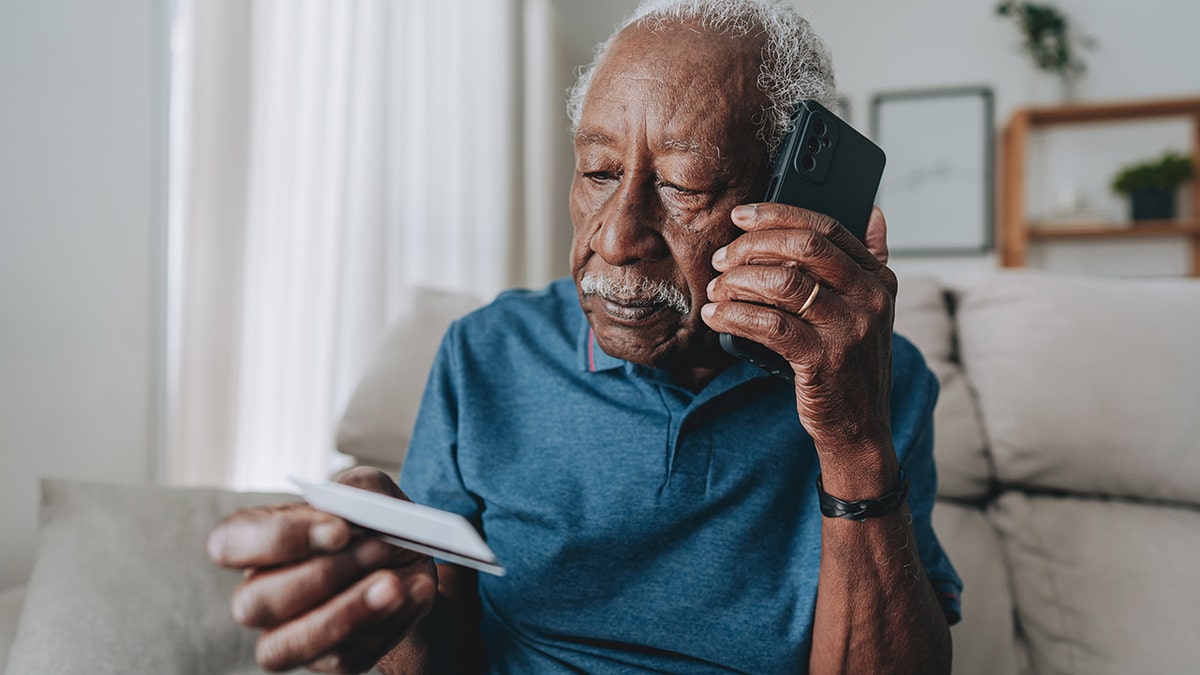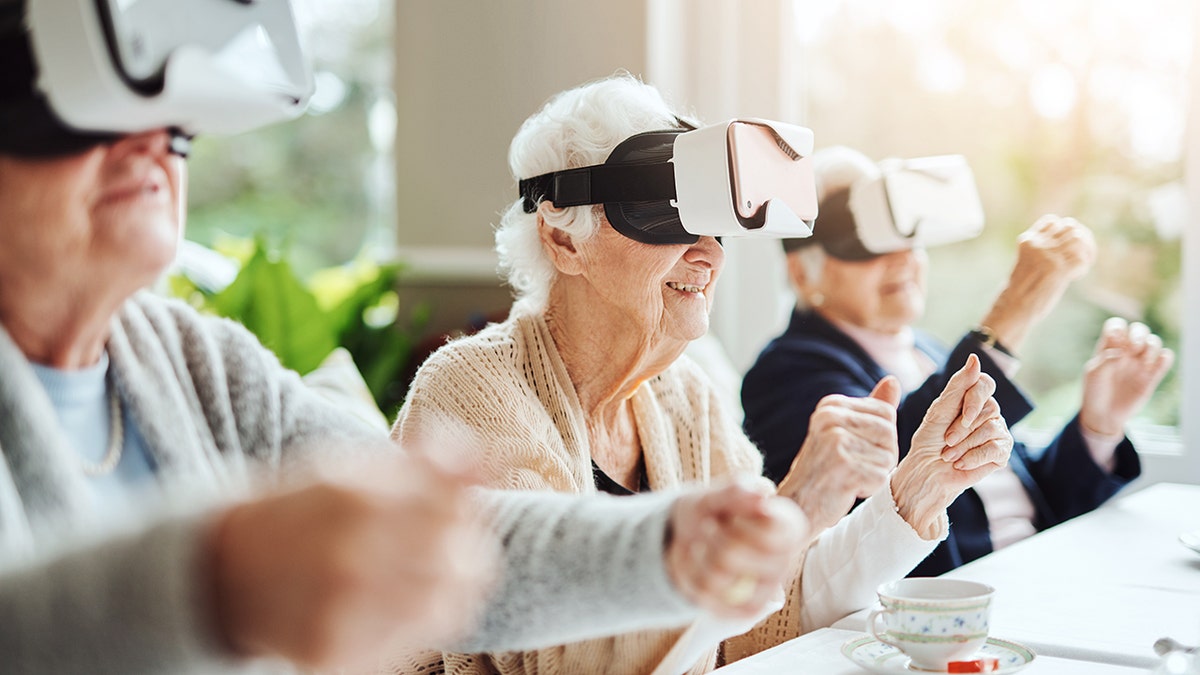
As digital technology continues to advance, seniors are at a particularly high risk of being targeted by scammers, experts say.
It’s important for older individuals to find a balance between enjoying the advantages of the internet and staying safe, according to Tom Kamber, founder and executive director of national nonprofit Older Adults Technology Services (OATS), which is part of AARP.
“Everybody has to use the internet these days for a lot of basic activities,” New York-based Kamber told Fox News Digital.
EXCESSIVE PHONE AND SCREEN USE TIED TO MANIC SYMPTOMS FOR ONE GROUP, STUDY FINDS
In an interview, the expert shared some of the main barriers and threats older people face when it comes to technology.
Read on …

The nonprofit Older Adults Technology Services expects to train “tens of thousands of people” on digital safety through a new initiative with Verizon. (iStock)
Scams and fraud
The No. 1 digital risk for seniors is scams and fraud, Kamber said — and an AARP survey found that the primary obstacle to using technology is fear of privacy violations.
“You have a target on your back when you get older these days, because people disproportionately try to target those scams at older people,” he cautioned.
AGING MAY SPEED UP IN AREAS WITH EXTREME HEAT, RESEARCH SUGGESTS
Many seniors have been scammed out of money through AI deep fakes online or on the phone, Kamber noted.
These can be hard to differentiate without proper knowledge of what is or is not real.

Seniors should develop skills in enabling password protection and learning how to recognize deep fakes, said an expert. (iStock)
“It’s very unfair, and it’s really a challenge, but older adults are five times more likely to lose money in a scam than younger people.”
Checking websites and email addresses to ensure they are trusted and reputable can help avoid scams like phishing, according to Kamber.
‘DOES SMARTPHONE EXPOSURE CAUSE BRAIN CANCER?’: ASK A DOCTOR
In a separate interview with Fox News Digital, licensed social worker and gerontologist Macie Smith advised seniors not to answer any calls that may be coming from a “spam caller” or “unknown caller.”
“It’s likely someone you did not share your number with, and you did not give them permission to call you,” said the South Carolina-based expert.

AI voice cloning can produce a call that sounds like a loved one, experts cautioned. (iStock)
“Do not click on any links that are emailed, texted or sent to you on social media from people you are not familiar with.”
If someone receives an uncharacteristic message from a contact on social media, there is a chance the sender’s profile has been duplicated by a scammer. In that case, Smith said people should call the individual to confirm.
AI-driven threats
While artificial intelligence can be baked into phone scams, AI-generated content on social media, including fake photos and videos, is another “prevalent” issue for some seniors, Kamber cautioned.
TOP 12 ELDERLY FRAUD SCAMS OF 2024
“There are a lot of challenges right now with access to what’s true and reliable information because of this,” he said.
“You can still recognize certain characteristics of the presentation that will give you a clue that something’s a little off.”

If something seems “too good to be true” on the internet, there may be more to it, an expert said. (iStock)
Kamber encouraged older people to build their “social common sense” and “street smarts” and apply these traits to online behavior.
CLICK HERE TO SIGN UP FOR OUR HEALTH NEWSLETTER
“Common sense is possibly one of the bigger assets for older people in learning to navigate this new world,” he added.
Overcoming barriers
To protect themselves from potential threats, Kamber recommended that older adults keep an open dialogue with family members and friends who can serve as a resource for tech-related questions.

To protect themselves from potential threats, older adults should seek guidance from family members and friends for tech-related questions. (iStock)
“We are all going to be talking about what’s real and what’s not real online for the next 50 years,” he said. “We need to constantly nurture … our help support channels so that we can be more resilient.”
Smith suggested that seniors share their login information with a trusted, tech-savvy person.
3 SIGNS YOUR AGING LOVED ONE MAY BE READY FOR ASSISTED LIVING
“This way, if there is ever a concern or question, that person can assist you in determining the credibility of the information and the source,” she said.
It’s important that seniors are not restricted from being active in the “current digital landscape,” Smith added.

“It’s important for all of us to stay current on what’s good digital hygiene,” one expert said. (iStock)
“Some of the things they depend on, such as Social Security benefits, are required to be managed online,” she said.
Social media can also help to combat loneliness and isolation in the senior population, the expert noted.
“Older adults are five times more likely to lose money in a scam than younger people.”
“We want to offer as many safeguards as possible to reduce or eliminate their risks of being scammed, while continuing to ensure they are socially engaged.”
Teaching digital wellness
OATS provides free technology and training programs for Americans over 50, Kamber shared. The organization recently partnered with Verizon to join its digital wellness initiative.
For more Health articles, visit www.foxnews/health
OATS will provide free digital wellness lessons in Verizon stores and senior centers, focused on helping people reap the benefits of technology while using it more safely and effectively.
“It encourages us to balance the potential risks and learn how to mitigate them,” Kamber said.

Seniors should be encouraged to learn how devices work instead of being deterred from the digital world, experts recommend. (iStock)
Donna Epps, chief responsible business officer for Verizon, emphasized the need for digital literacy training among seniors.
“AI voice cloning – you may get a call, and it sounds like a loved one who is in trouble and seeking money – that’s a common new scam from online criminals,” the Washington, D.C.-based expert told Fox News Digital.
CLICK HERE TO GET THE FOX NEWS APP
“It’s important for all of us to really stay current on good digital hygiene – what are the strategies, what do we need to look out for?”




